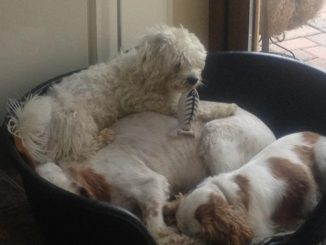
[dropcap]S[/dropcap]pace week is a great way to hook people of all ages into the sciences, according to DCU mathematical scientist Dr John Regan.
DCU hosted a series of age-friendly lectures on space and time in the nurse’s building to celebrate the annual World Space Week last Tuesday.
“It’s a great way to inspire people to take interest in astrophysics and the other sciences,” said Dr Regan. “We can piggyback off the publicity of Space Week to reach out to more people we might not have been able to before.”
At the public lecture, Dr John Regan educated the audience on how black holes are formed and what we know of their abilities, including time travel.
His colleague Dr Ernst de Mooij talked about the latest discoveries surrounding Exoplanets and how we could be close to finding a planet with Earth-like qualities that may be able to host life.
In his lecture, de Mooij voiced his hopes for Ireland to invest in an Extremely Large Telescope to allow the country to join the world in discovering what lies beyond Earth.
These telescopes are usually 100 metres across and have a mirror with a diameter of 30 metres. It is believed that these telescopes would be able to detect oxygen on planets light years away.
With these recent discoveries, scientists hope to find what is necessary on planets in order to achieve life.
Professor Abraham Harte went on to discuss the breakthroughs in gravitational waves detection.
This discovery, led by three physicists Rainer Weiss, Kip Thorne and Barry Barish, was recently awarded the Nobel Prize in Physics.
Gravitational waves, which were predicted by Einstein’s theory of relativity, are invisible ripples in the space time continuum that generate outwards from large accelerating objects. Scientists were able to discover these waves after a collision of two black holes millions of years ago.
“For the first time in history, we have a whole new way to learn about the universe,” said Harte in relation to these recent breakthroughs.
Aoibhin Bryant


